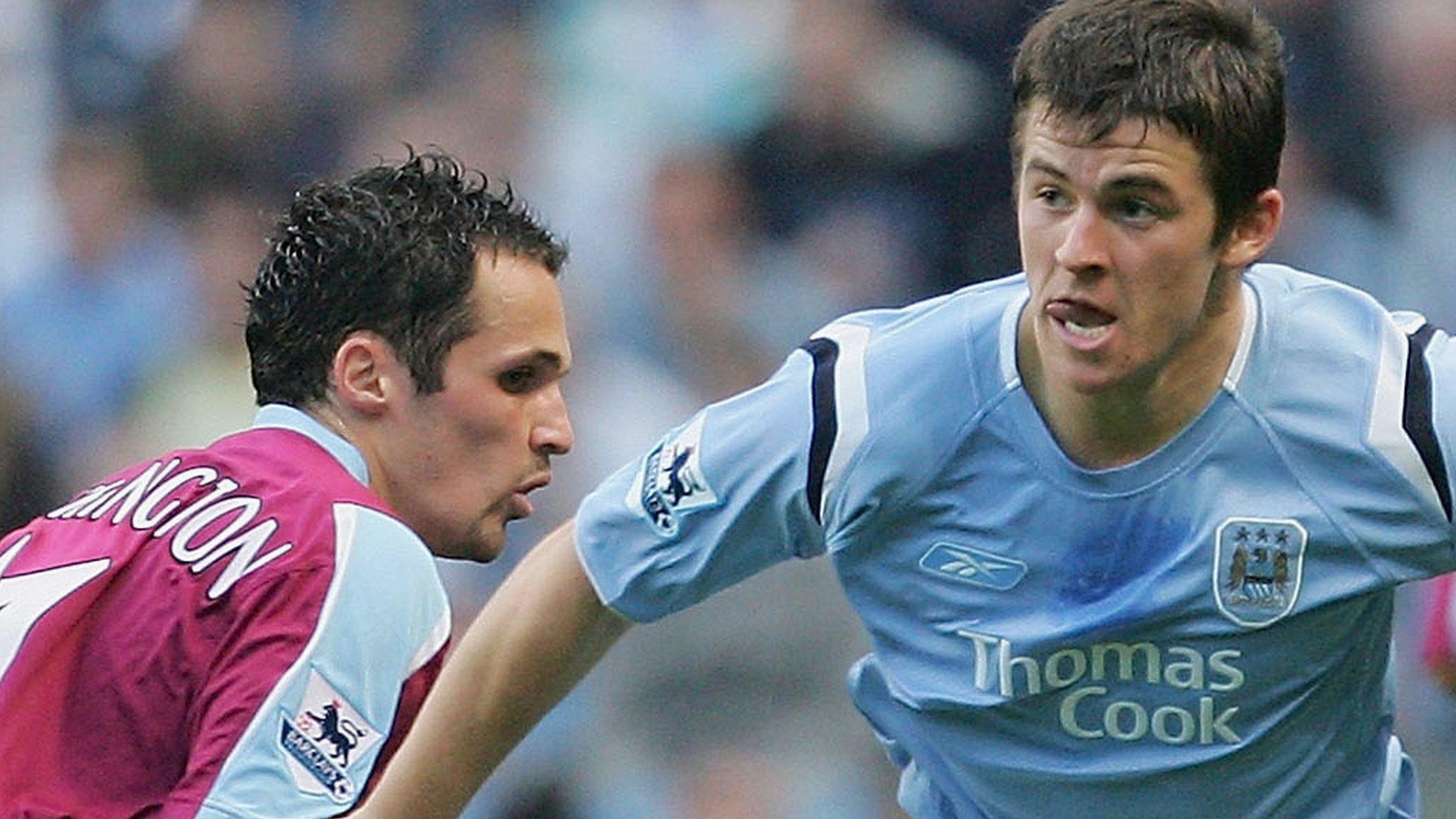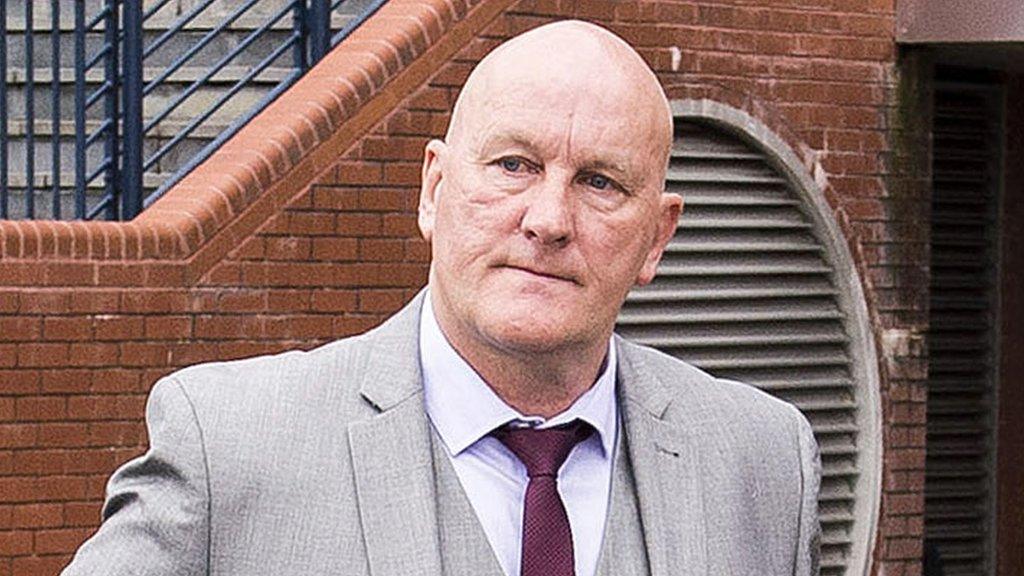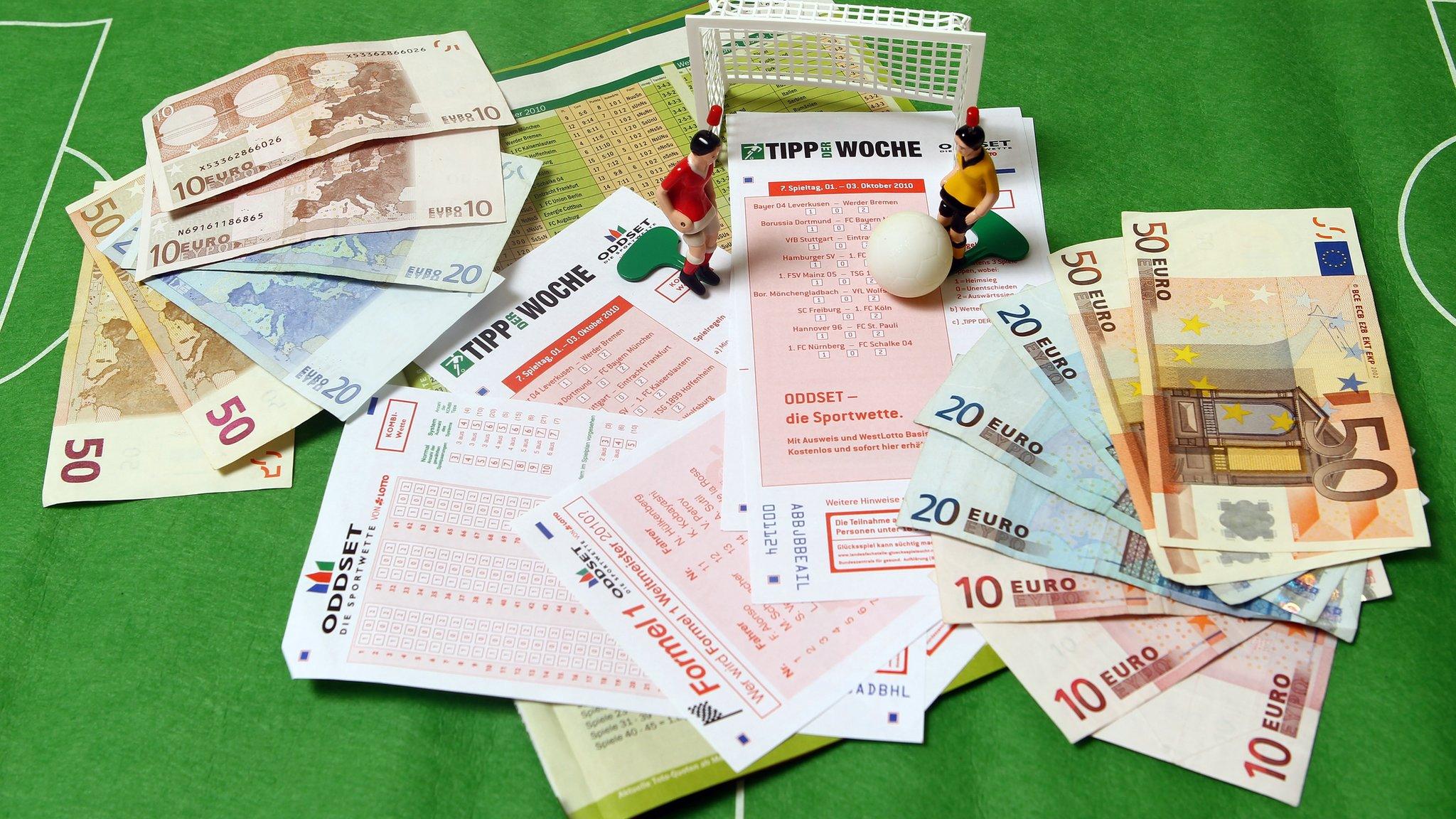Gambling in football: FA ends deals with gambling firms including Ladbrokes
- Published
Matthew Etherington says that since he has retired from football, agents have been in touch asking if he would advise players with gambling problems
The Football Association has ended all of its sponsorships with betting companies, including mutually terminating a long-term Ladbrokes deal.
The decision follows a three-month review into the governing body's relationship with gambling firms.
The FA says it will continue to share important information with companies to identify suspect betting patterns.
Chief executive Martin Glenn thanked Ladbrokes for its "professionalism and understanding" on the change of policy.
The betting company's chief executive, Jim Mullen, added: "We understand the FA's decision regarding their commercial partnerships on gambling."
Mullen said Ladbrokes would continue to work with the FA "to ensure the integrity and trust of the sport is maintained".
The Gambling Commission's executive director Tim Miller said: "This news will not impact on the ability for us, the FA and gambling companies to share information about suspected sports betting integrity issues."
Football's relationship with gambling has come under recent scrutiny, with midfielder Joey Barton criticising the FA's "dependence on betting companies".
Barton, who said he is addicted to gambling, was banned from football for 18 months after admitting an FA charge in relation to betting.
Reacting to Barton's ban in April, former Stoke winger Matthew Etherington, who lost £1.5m at the height of his gambling addiction, told BBC Radio 5 live the industry should be better "regulated".
"It's very hard and complex, but everyone needs to take a little bit more responsibility - the PFA [Professional Footballers' Association], the players, the FA and the gambling organisations themselves," the 35-year-old said.
Analysis
BBC sports editor Dan Roan
The decision to end this commercial relationship with Ladbrokes will cost the FA an estimated £4m a year in sponsorship revenue.
But it does at least finally address mounting concerns the governing body was being hypocritical and its role as a regulator of gambling was hopelessly compromised by a clear conflict of interest.
However, there will still be concerns the football and gambling industries are too closely linked. It will be interesting to see if the clubs follow the FA's lead.
The Premier League itself may not have an official gambling partner (like the FA), but last season 11 Premier League teams were sporting betting company logos on their shirts, and Sky Bet are title sponsors of the Football League.
There could now be increased pressure to end this, and to limit the promotion of gambling around football via broadcast programming too.
- Published25 May 2017

- Published26 April 2017

- Published30 April 2017

- Published22 February 2017
